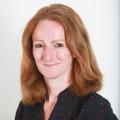
DOCTORS, dentists, pharmacists and hospitals are being urged to cater for non-English speaking refugees after a study found they were not being adequately supported.
Healthwatch North Yorkshire found some refugees seeking medical help were being denied access to interpreters or discouraged from using them, while health professionals often relied on Google Translate – which NHS guidelines say should be avoided due to its lack of accuracy.
With the NHS encouraging people to use their local pharmacy as their first port of call for managing minor illness, Healthwatch North Yorkshire looked into whether services were fit for refugees – but found that many attempting to find help from pharmacists will be forced to take their ailments elsewhere.
Healthwatch carried out a “mystery shopper” investigation at 25 pharmacies across the county, seeking support for a friend whose first language is Arabic.
They found only four pharmacies willing to provide interpreter services.
One of the 21 that did not provide services suggested to continue calling around pharmacies until they got a “Muslim pharmacist”.
Healthwatch also conducted focus groups within Refugee Council drop-in services at locations including Northallerton, Richmond and Ripon.
People mostly shared their experiences accessing primary care such as GPs, dentists and pharmacists, although some offered stories of their experiences at A&E and at other secondary care services, usually at hospitals.
Their anecdotal evidence showed how a lack of interpreter provision had affected their care throughout their treatment journey, from registering at initial access to booking appointments, clinical interventions and written follow-up letters.
They also shared stories about dentists who do not provide interpreters, but will not conduct appointments without them.
This leads to patients having to pay for interpreters themselves, having to take unqualified relatives to interpret or having to rely on services like the Refugee Council to provide support.
Nigel Ayre, operations manager for Healthwatch North Yorkshire, said: “Our findings show that refugees in North Yorkshire face significant inequalities when it comes to accessing healthcare.
“NHS guidelines state their communication needs should not prevent them receiving the same quality of healthcare as others, but this is not reflected in the experiences of those we’ve heard.
“The difficulties they can face in accessing interpreters create substantial barriers right through their treatment journey, and we’re hoping to work with service commissioners and providers to ensure changes are made to give them the same quality of care as English speakers.”
Public services have an obligation to provide equal access to services under the Equality Act 2010 and the Public Sector Equality Duty Act 2011



Comments: Our rules
We want our comments to be a lively and valuable part of our community - a place where readers can debate and engage with the most important local issues. The ability to comment on our stories is a privilege, not a right, however, and that privilege may be withdrawn if it is abused or misused.
Please report any comments that break our rules.
Read the rules here